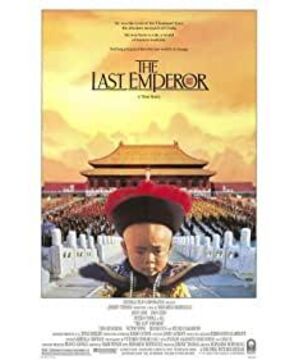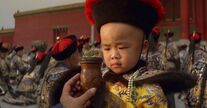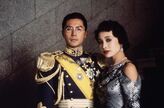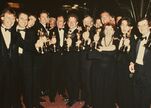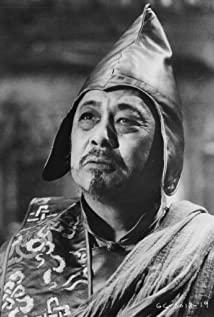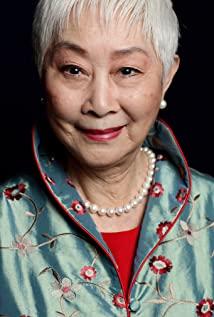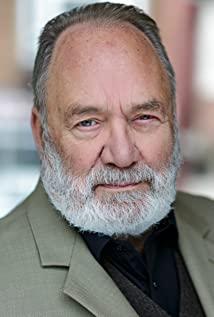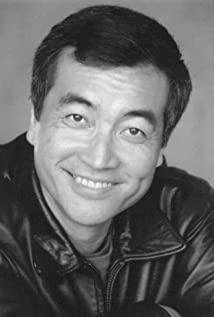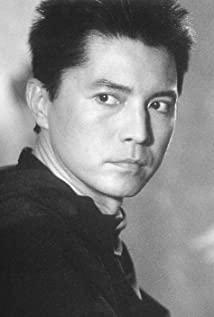China voted for it, and Bernardo Bertolucci also responded to it. Even though this film has a bit of Westerners' curious vision of China, it tells a very Chinese story in general without any prejudice, and there are not too many beautiful words. Of course, the braid head, the loyal character dance, and the leader comrades, which have become Chinese cultural symbols, are still unavoidable to be taken out of the book. There is no way, the movie is for the audience to watch. Most audiences don't have time or interest to dig into the profoundness of Chinese culture. They must use these stereotyped symbols to hit their eyeballs. Just like when we talk about the United States, the first thing that comes to mind is Hamburg, the White House, the skyscraper and the Statue of Liberty.
Aside from these superficial symbols, the most successful aspect of "The Last Emperor" is that it tells the story of a "person" completely. The way Chinese history books deal with the emperor has always been a simple dichotomy, either the Mingjun or the faint emperor, there is no middle ground at all. Pu Yi would naturally be classified as a faint emperor. As soon as he talked about him, the big hats of cowardice, mediocrity, treason, etc. were immediately put on. Such an emperor seemed to have no need to write a book for him. What we want to write is the Emperor Qin Shi Huang, Emperor Wu of the Han Dynasty, and an emperor like Emperor Taizong of the Tang Dynasty. Let everyone shed tears in their great cause of struggling and creating a prosperous age. Occasionally filming two film and television dramas of the dazzling monarch is basically taken as a patriotic warning education film, the purpose is to tell everyone that such people should be nailed to the pillar of historical shame forever.
"The Last Emperor" was not filmed in this way, not beautified, and not belittled. It just treated Puyi as an ordinary person, accidentally born in the emperor's house, inexplicably established as the crown prince, and then was wrapped in the great age to keep moving forward. Forward, forward again. Pu Yi in the film has no great wisdom, and his vision is neither deep nor broad. It is written on the face of favoritism, bullying, and fear of hardship, just like you and me outside the Forbidden City. In the process of watching the movie, it is easy for everyone to forget that he is an emperor, just as we can easily forget-the emperor is a person first, and an emperor second.
This kind of treatment was no different at the time, and even now it is rare. However, it is this meticulous depiction of human nature that makes the film extremely cordial and moving. We can see Pu Yi’s vanity when he enjoys the throne’s embrace, and the youthfulness of Pu Yi on the wedding night with Wanrong, his admiration for the Western world of flowers and flowers, and his Longing for freedom. Even when he saw the biggest black spot in his life that could not be erased-when he formed the Manchukuo in collusion with the Japanese, he would not be deeply sickened by him. As any ordinary person, is he able to resist the great temptation to return to the noble status of the past?
This meticulous description of human nature allows us to see our own shadow in the emperor, a mask that is too noble to look directly at in the history books. As a result, the characters, the times and the audience have an emotional resonance, and the effect of the film is achieved, and the accompanying cultural symbols and historical processes are naturally reflected in the audience's mind.
The director and screenwriter are both Westerners, and of course they know what is most impressing Western audiences. There are cultural barriers, but human nature is universal. It is not surprising that "The Last Emperor" can succeed in foreign countries, just as most Chinese audiences don't know where and which era "Hamlet" took place, but they are also concerned about "survival or death, this is a problem". Most Western audiences are not so clear about the history of the late Qing Dynasty, the Republic of China, and the Republic, but they can feel the insignificance and helplessness of individuals facing the wheels of the times. They can substitute for the expressions of ugliness or beauty. ——As for history, it is just a stage. History has stretched for so many years, and all backgrounds have changed, but people, and only people, are the constant protagonists on the stage.
After all, this is the correct way to export culture. The symbols of Chinese culture, such as Zhang Guoshi’s favorites-the Great Wall, the square array, the swordsman, the uniform dance, etc., are mostly tired of watching them. What we want to see are people, living Chinese people, not those muddy puppets mixed into the grand scene. I remember Wang Xiaobo wrote in the book that a foreigner told him that although the history from the 60s to the 70s was a social tragedy, it was a treasure trove of artists. In that distorted age, I don’t know how much it will happen. Wonderful humanity story! Because of this, he even felt a little jealous of Chinese artists.
However, our Chinese artists have gone astray. In terms of cultural output, we have also been engaged in a dichotomy. Either just like the earlier "Chinese style" movies, just buy it miserably; or just like today's "Chinese style" movies, they only shoot in the prosperous world, completely ignoring the complexity of human nature, and completely ignoring the world's manifestations in the great era. . This kind of thing, one part and two parts are very fresh, but three parts and four parts are naturally boring.
After "The Last Emperor", the most successful Chinese cultural export movie is probably "Crouching Tiger, Hidden Dragon". The highlight of this film is not in the martial arts fighting scenes, but in the conflict of desire and ethics similar to "Hamlet". The characters in the film are flesh and blood, not machines, and the wonderful fights are not for defeating monsters. It is the fierce inner struggle that reflects on the body and language. "Hero" also wants to imitate the approach of "Crouching Tiger, Hidden Dragon" to a certain extent, but it still ignores the "people", and it wants to say something like "great unification", "world under heaven" and so on. China’s political correctness, without digging deep into the individual’s heart, the effect will naturally be compromised. But even so, its cultural popularization for Western audiences is much better than "The Great Wall", which is about to fight monsters if they don't agree with each other.
Why can't today's Chinese movies move people's hearts? Because they never thought about writing "person". In these films, the characters are all symbols and all the backgrounds. They are all conceived by the director and screenwriter. They are driven by incredible plots and logic, which is not something that a normal person should do. For a good movie, "people" are the key. The plot and dialogue flow naturally from the heart of "people". Without working hard on human nature, China's cultural output has always been a self-entertainment. No matter how many squares are lined up, no matter how many lanterns are lit, it will not help.
View more about The Last Emperor reviews


